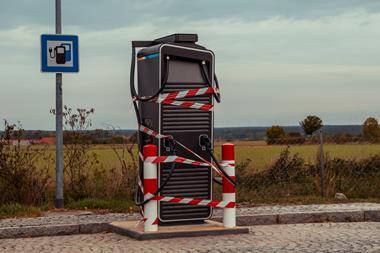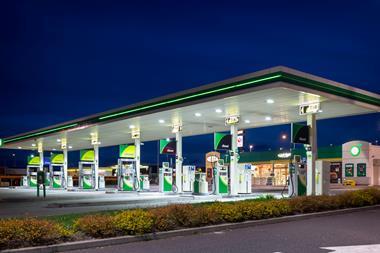SO THAT’S ANOTHER £2,000 a year to find. An increase of 20p an hour in the National Minimum Wage may not sound a lot (and at just over 4% it’s thankfully one of the smallest increases for a while) but if you’re open 24 hours a day, seven days a week, allow for 20 ‘extra’ hours for cleaning, stocking and paperwork and pay four weeks holidays, £2,000 is what the bill comes to. If you want to get really depressed, chuck in the fall of mobile top-up revenues and the erosion of utility income as every little shop gets its own Paypoint/Payzone terminal and you now need to find nearly £4,000. Oh, it’s being this cheerful that keeps me going. Luckily it’s not all doom and gloom. Thank goodness for booming bottled water sales and the ever-increasing demand on car valeting is what I say.
SOME OF MY FRIENDS are puzzled over why I have been doing the same job for over 20 years. ‘Don’t you get fed up?” they ask. “It must get boring, the same old thing every day. Don’t you fancy a change?” Now while it’s true that there’s plenty of mind-numbing repetition in our business, what they don’t seem to realise is how much retailing changes over the years. Ten years ago who would have thought we could sell massive volumes of bottled water in the UK. Six years ago you couldn’t give Red Bull away if you tried (I remember trying to clear our first consignment off at ‘2 bottles for £1’ and still having to chuck most of it away). Now it’s our number one seller by value. Just look at the rise of healthy yogurt drinks. When I first saw the adverts on TV I thought they were off their trolleys. There we were struggling with worries about ecoli, listeria and salmonella and some bright spark had decided we could be persuaded to actually buy bacteria to drink. Shows you what I know.
IN FACT, WHICHEVER CATEGORY you look at the sales mix is always changing. Cigarettes? Once upon a time Gallaher dominated with B&H and Silk Cut taking 60% of our sales – now it’s L&B and Richmond. Confectionery? The rise of CDM is as dramatic as the fall from grace of Kit Kat. The real challenge in our industry is how to keep up-to-date with all the changes that are going on.
WHEN YOU ONLY HAVE ONE site it’s not too bad. You see what’s selling, hear what the customers are saying and get to see the reps. Expand to two sites and it’s still relatively easy, but get more than two and it calls for a change of thinking.
THAT, TO ME, is one of the dangers for those attracted by Shell’s offer to operate a cluster of five or six sites. Apart from the fact that a ‘reward’ of £80,000 is wafer thin when you consider the risks involved in six different operations, what the model of operation doesn’t allow for is the management time needed to manage a full-scale business. It’s not only harder to know what’s happening at the coal face, but once you’ve got 50 or 60 employees, the days of only paying lip service to all the employment legislation, payroll implications and health & safety issues are well and truly over. That guy from Environmental Health doesn’t look at you as a small business struggling to make its way. Oh no, now you’re a proper concern with all the resources available to ensure full implementation of every mad-cap policy that is flavour of the month.
INCIDENTALLY, if you are expanding to five or six sites, there is some merit in spreading these over two or three limited companies, notwithstanding the advice from EKW a couple of months ago. While there is more paperwork involved, if you keep the companies to a geographical area you stand the chance of keeping ‘under the radar’ of the busy-bodies. It also means you are more likely to be able to reclaim SSP and you will be able to claim multiple incentives for filing your P35s electronically. Plus you keep below the turnover thresholds for full-scale audited accounts. But I still think the Shell deal is a recipe for disaster. Watch this space...



























No comments yet